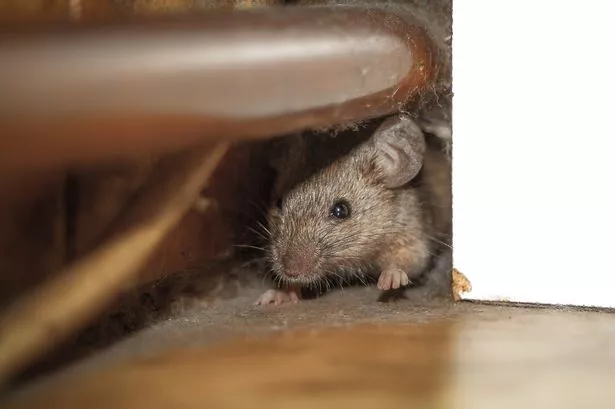Rodents, such as rats and mice, can be a frustrating and unsanitary nuisance in any home. Their presence not only creates a sense of unease but also poses potential health risks and property damage. While professional pest control services are often necessary for established infestations, preventative measures can significantly reduce the likelihood of these unwelcome guests taking up residence. One highly effective and readily accessible method of rodent deterrence revolves around utilizing their keen sense of smell. Certain scents are naturally unpleasant to rodents, acting as a repellent and discouraging them from exploring and settling in your home. By incorporating these scents strategically around your property, you can create an olfactory barrier that passively safeguards your space.
Pest control expert David from Eliminate Solutions highlights four readily available scents that prove particularly effective in deterring rodents. These options offer practical and cost-effective solutions for homeowners seeking to implement preventative measures against rodent infestations. Understanding the olfactory sensitivities of rats and mice allows us to leverage these scents strategically, creating an environment that is unappealing to them. This approach not only helps to prevent infestations but also avoids the need for more drastic measures like traps or poisons, which can be harmful to pets and children. By incorporating these natural deterrents into your regular cleaning and maintenance routine, you can establish a long-term defense against these persistent pests.
The first scent on David’s list is peppermint oil. The potent, menthol-rich aroma of peppermint oil overwhelms the sensitive olfactory systems of rodents, making it highly unpleasant for them. Soaking cotton balls in peppermint oil and placing them strategically in areas prone to rodent activity, such as near entry points, along walls, and in storage spaces, creates an invisible barrier that discourages exploration. Refresh the cotton balls regularly to maintain the potency of the scent. Additionally, planting peppermint around the perimeter of your home can further enhance the deterrent effect, creating a natural and fragrant defense.
Next, cloves, both whole and ground, offer another potent rodent repellent. The strong, pungent aroma of cloves is highly irritating to rats and mice, deterring them from venturing near the source. Placing whole cloves in areas of suspected rodent activity or creating sachets of ground cloves and distributing them strategically around your home can effectively discourage these pests. Similar to peppermint, consider planting clove-producing plants in your garden to provide a natural and ongoing source of this repellent scent.
Ammonia, commonly found in household cleaning products, also acts as a powerful deterrent due to its strong, acrid smell, which mimics the odor of predator urine. This triggers an instinctual fear response in rodents, causing them to avoid areas where the scent is present. Soak rags in a small amount of ammonia and place them in strategic locations, taking care to avoid direct contact with skin and ensuring proper ventilation. However, exercise caution when using ammonia, as it can be harmful to pets and children if not handled properly. Always use in well-ventilated areas and keep out of reach of vulnerable individuals.
Finally, white vinegar, a staple in many pantries, offers another readily available rodent deterrent. The strong, acidic smell of vinegar is highly offensive to rodents, discouraging them from approaching areas where it’s present. Spraying a solution of equal parts white vinegar and water around potential entry points, along walls, and in areas of suspected rodent activity creates an invisible but effective barrier. Repeat this application regularly, especially after cleaning or rain, to maintain its effectiveness. The added benefit of vinegar is its natural cleaning properties, making it a safe and effective solution for both pest control and household sanitation.
Implementing these simple yet effective scent-based strategies can significantly contribute to a rodent-free home. By understanding the olfactory sensitivities of these pests, we can utilize readily available scents to create an environment that is uninviting and ultimately deters their presence. Remember to combine these scent-based deterrents with other preventative measures, such as sealing potential entry points, maintaining proper sanitation, and storing food securely, to create a comprehensive and effective rodent control strategy. Regularly inspecting your property for signs of rodent activity, such as droppings or gnaw marks, allows for early detection and intervention, preventing a minor nuisance from escalating into a full-blown infestation. If you suspect a significant rodent problem, it’s always best to consult with a professional pest control service for a comprehensive assessment and tailored treatment plan.














